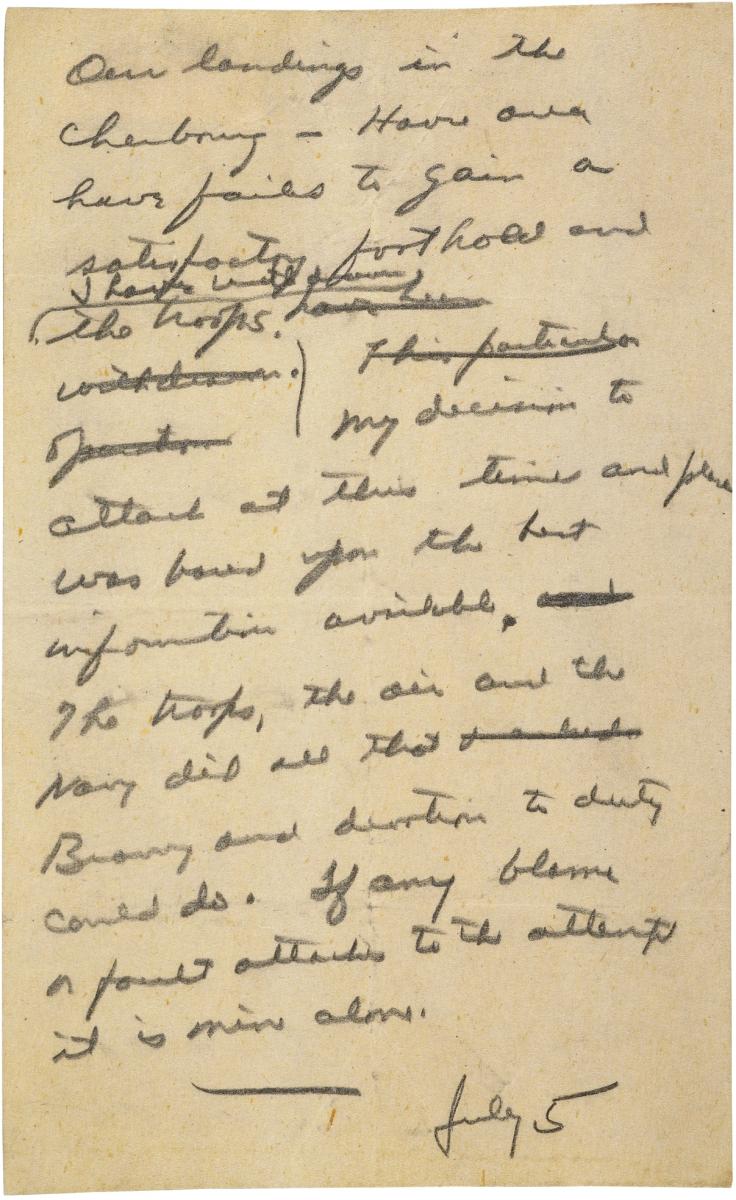
Eisenhower’s Two D-Day Messages
Summer 2004, Vol. 36, No. 2 | Pieces of History
The man they called “Ike” plunged into a group of combat-ready young Americans, just to chat, to find out where they were from, what they did back home, to ask if anyone was from his home state of Kansas.
Gen. Dwight D. Eisenhower could also look into the eyes of some of the thousands of young men he was ordering into combat the next morning, sixty years ago this summer, D-day.
Throughout the first half of 1944, in the English countryside, American and Allied troops had amassed and trained. The morning of June 6, a great armada took them to the French coast, where they hit the beaches, dodged German bullets, and scaled the cliffs.
For this moment in World War II, Eisenhower, the Supreme Allied Commander, had two messages ready. Eisenhower wrote in his “Order of the Day”:
"You are about to embark on the Great Crusade, toward which we have striven these many months. The eyes of the world are upon you. The hope and prayers of liberty-loving people everywhere march with you. . . .
"Your task will not be an easy one. Your enemy is well trained, well equipped and battle-hardened. He will fight savagely.
"But this is the year 1944! Our Home Fronts have given us an overwhelming superiority in weapons and munitions of war, and placed at our disposal great reserves of trained fighting men. . . .
"Good luck! And let us beseech the blessing of Almighty God upon this great and noble undertaking."
But Eisenhower had secretly prepared a second message—in case the D-day landing failed—then discarded it after realizing the operation was a success. An aide retrieved it:
"Our landings in the Cherbourg-Havre area have failed to gain a satisfactory foothold and I have withdrawn the troops. My decision to attack at this time and place was based upon the best information available. The troops, the air and the Navy did all that Bravery and devotion to duty could do. If any blame or fault attaches to the attempt it is mine alone."
D-day, however, did not fail. Allied troops established a beachhead in Normandy from which they began the assault on Germany. Within eleven months, the Third Reich was destroyed.
Long after D-day, however, the sobering thought of having ordered many young Americans to their death, even in a good and noble cause, remained with Eisenhower. In June 1945, heading home after victory in Europe, he said in his famous Guildhall address in London:
"Humility must always be the portion of any man who receives acclaim earned in the blood of his followers and the sacrifices of his friends."

